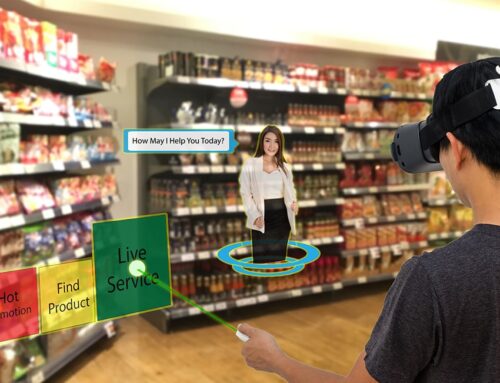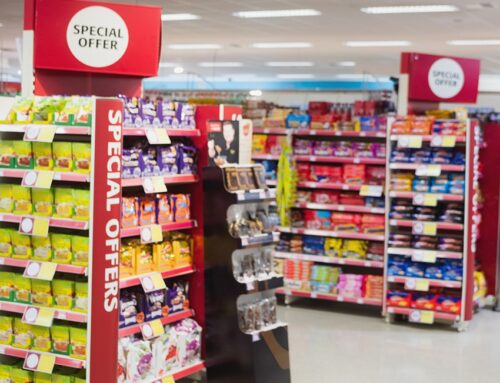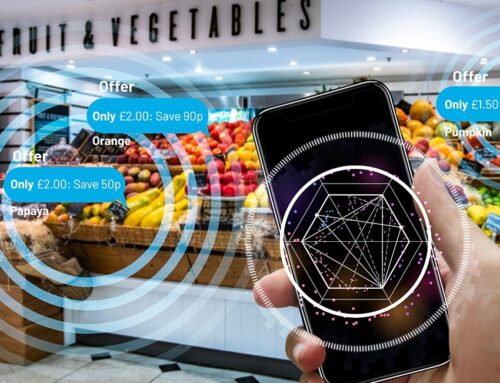10 of the Best Grocery Store Advertising Campaigns
In the fiercely competitive world of grocery stores, it is essential for brands to be distinguishable from their competitors. They use inventive and humorous marketing strategies in order to draw customers’ attention towards them and enhance sales. This article will examine 10 successful grocery store advertising campaigns that were launched and succeeded in achieving these goals.
Key Takeaways
- Aldi’s blend of humor, creativity, and relatability in their campaigns has led to sales growth.
- Tesco successfully highlighted customer experiences and quality while offering attractive price cuts.
- Lidl emphasized providing premium produce at fair prices, Iceland raised environmental awareness through Rang-tan campaign, Morrisons focused on local produce & community support etc highlighting each supermarket’s unique approach to marketing.
1. Aldi’s Kevin the Carrot and #FreeCuthbert
The campaigns led by Aldi featuring their beloved character Kevin the Carrot, including leveraging the #FreeCuthbert movement to stir brand chatter on social media channels, effectively display how creative and humorous advertisements can be in capturing customers’ attention.
The fact that major supermarkets like Aldi saw an 8.1% increase in sales as a result of this campaign’s success shows that it was an achievement. This goes to show how effective advertisements have a big impact because they help businesses attract customers while also significantly increasing profits.
It has thus pushed them forward in what remains a competitive market environment by blending relatability and wit in its advertisements, resulting in impressive victories year after year.
2. Tesco’s Food Love Stories
The Food Love Stories campaign made a major transformation in Tesco’s brand, evolving from being cost-oriented to having more focus on quality. This campaign highlighted different customer experiences and showed how people love the products of Tesco, connecting with their target audience better than ever before.
This project, titled ‘Prices That Take You Back,’ was enormously popular. As a result of the incredible price cuts, there has been a massive increase in sales. Customers hurried into Tesco stores to buy several items included in this sale, including 147000 tins of beans in one hour, 19 million grams of Cathedral City Cheese, and three weeks’ worth of fish fingers, all of which were sold out on that day! Even though costs were dramatically decreased, popular British companies such as Nestle, Richmond Sausages, and McCain benefited from the lower rates. It is evident that focusing on quality and price, as well as skillfully creating engaging food stories, are key reasons for Tesco’s recent remarkable success!
3. Lidl’s Big On Quality
The goal of Lidl’s “Big On Quality” campaign was to highlight its commitment to giving customers a variety of high-quality food options, both for cult fans as well as mainstream brands. This shift in focus from pricing points was a way of expressing the company’s commitment not only towards high-quality products but also without exceeding set prices.
This award winning marketing strategy used several channels such as radio campaigns, social media platforms, cinema screens, and outdoor advertising which aided them in reaching out to an extensive audience while publicizing Halloween party items along with other goods under this promotion. Displaying the full potential that efficient strategic planning can bring about good results.
These successful projects by Lidl are being carried out by Karmarama Creative Agency, which has previously worked with well-known companies like PG Tips and made significant contributions using customer insights mixed with technical expertise. It has been quite helpful to see sustained participation among customers who are expressing their confidence in the premium food options offered at reasonable prices.
4. Iceland’s Rang-tan and Environmental Awareness
The Rang-tan campaign in Iceland was started with the intention of raising environmental awareness and promoting sustainable business practices with regard to palm oil. The advertisement, which portrayed a small girl with an orangutan that had been uprooted due to deforestation in Indonesia, was removed from television because it appeared too political. Despite this loss, Kantar Millward Brown labeled it “the most powerful commercial” due to its viral social media sharing resulting in tens of millions of views overall. This demonstrates how a powerful message may effectively capture people’s attention and lead to long-term change.
5. Morrisons: Local Produce and Community Support
In their marketing campaigns, Morrisons aims to emphasize the importance of local businesses and sustainability in the grocery sector by highlighting their relationships with farmers who supply produce for them. They ran a campaign called “What We Make Makes Us Who We Are” which intended to demonstrate how close Morrisons was connected with its suppliers as well as underline what kind of brand it stands for, valuing both communities and quality.
This approach towards promoting locally sourced products appeals not only to customers wanting eco-friendly choices but also makes Morrisons stand out among other competitors that lack this distinct message in their advertising strategies. Thus, these efforts effectively demonstrated Morrisons’ dedication to community involvement and getting outstanding results.
6. Asda’s Innovative Halloween Campaign
Asda’s innovative Halloween marketing campaign combined Shazam and AR technology to create an engaging viewing experience, highlighting themed decorations and food. This high-tech approach demonstrated Asda’s commitment to trying new methods of communicating with their target audience while creating lasting memories.
Viewers could scan the advertisement with Augmented Reality (AR), which then overlays a singing mouth overtop of theirs in time with Cameo’s song “Word Up.” By developing such an interactive encounter, Asda was able to effectively advertise its exclusive spooky products in a remarkable manner that enabled users from all across the globe to connect on this singular platform effortlessly.
7. Waitrose: Ethical Retailing and Festive Humor
Waitrose combines ethical retail practices and humorous themes in their marketing campaigns, delivering a balance of responsible business conduct with entertaining messaging. Their ads typically consist of footage from farms that emphasize animal welfare as well as Waitrose’s dedication to high-quality sourcing methods.
One such example of the campaign intended to show how people get excited about festive foods like during the Christmas season while adding humor into their advertising efforts. This creative combination of social responsibility and lighthearted entertainment has allowed the supermarket brand to draw attention from customers who prioritize those values within businesses they support. Waitrose achieves both by highlighting its dedication to sustainable production and standing out among other brands that don’t necessarily have similar standards when it comes to business decisions or promotional strategies through marketing campaigns by fusing eco-friendly principles with humorous material.
8. M&S Food: Reviving a Classic Tagline
M&S Food decided to bring back their well-known phrase “Not Just Any” as part of a #ThisIsNotJust campaign. Through this initiative, the brand has reinvigorated its original tagline – “This is Not Just Food… This Is M&S Food” which was first used fifteen years ago.
The promotional strategy varies from previous ones in that it focuses on consumers fantasizing about M&S food options rather than merely displaying it. By doing so, a more intimate bond can be formed between customers and products.
Reviving this slogan has enabled M&S Food to establish a strong connection with both old devotees and potential buyers who may not have viewed the store previously when considering grocery items. With such measures taken for advertisement, it allows them to emphasize their determination towards providing quality offerings while capturing attention simultaneously too.
9. Sainsbury’s: Celebrating British Supply Chains
To emphasize the value of local sourcing and sustainability in their grocery business, Sainsbury’s places focus on British supply chains through comprehensive advertising campaigns. Such initiatives attract customers who prioritize eco-friendly practices and support nearby businesses. The company strives to reduce environmental impact while simultaneously boosting the national economy by promoting domestic procurement via marketing strategies that display a commitment to these values. This sets them apart from competitors who may not highlight such important concepts, appealing instead to an evergrowing consumer base that appreciates this message being showcased within their advertisements.
10. Co-op: Community Initiatives and Fairtrade Products
Co-op makes a point to stand out from its competitors by emphasizing their local brands, Fairtrade products, and initiatives that promote responsible business practices. Through these campaigns, they are demonstrating to customers how committed they are to making a difference in the areas where they do business. Collaborations like the one between Vitesse soccer club and Albert Heijn serve as evidence of this. Offering discounts to customers who made purchases over a certain amount of money.
Advertising has been successful in attracting customers regardless of their demographic background or interests by raising consumer awareness of Co-ops’ commitment to ethical retailing and community support while reaching an audience made up of people conscious about making socially conscious decisions when deciding where and what types of goods to purchase.
The supermarket gives careful consideration to presenting not only varied products but also the methods in which many businesses have worked cooperatively to achieve positive results in the neighborhood.
Summary
The secret to grocery stores’ success is their skill in creating innovative advertising campaigns that draw in their target audience and, as a result, boost sales. Examples include Aldi’s hilarious #FreeCuthbert promotion starring Kevin the Carrot or Waitrose’s fusion of ethical practices with humour during festive periods, both showcasing how imperative it is for such retailers to stay ahead through creative strategies that resonate with audiences.











